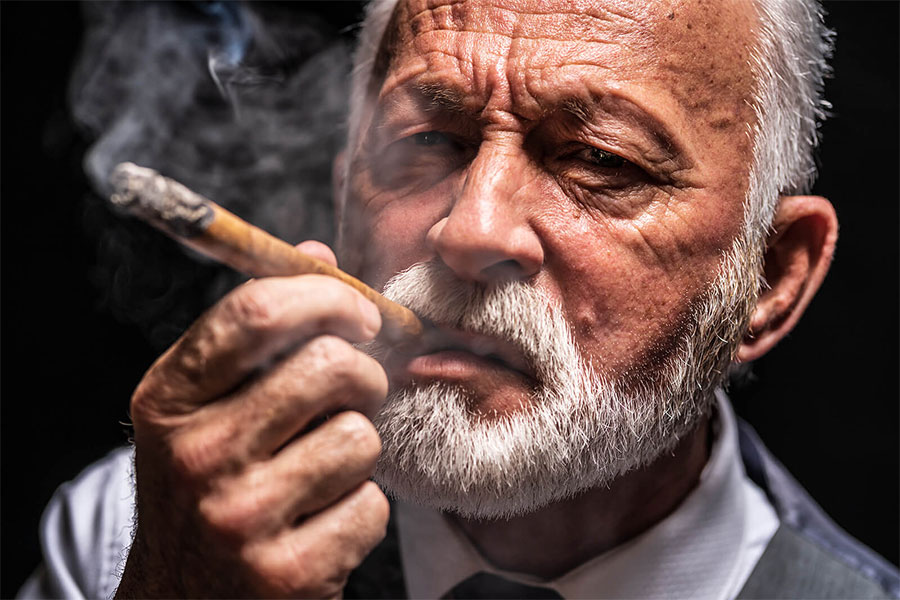Do Cigars Get Better With Age?
As the saying goes, things get better with age. While this may not be true for items such as milk or eggs, several products benefit from age.
Various liquor, such as whiskey and wine, is known to grow smoother, more flavorful, and more valuable with the right aging treatment, and it is often recommended to age them.
When it comes to cigars, aging is less of a suggestion and more of a requirement, at least during certain stages.
Aging plays an essential role in the cigar industry and can drastically affect the flavor, quality, and price of a cigar. From the early stages in the process to even after a cigar has been sold, aging can be a rather important factor.
Let’s take a look at how aging affects a cigar and the dos and don’ts of cigar aging.
What is the Aging Process?
Aging plays its first part in the process of making a premium cigar in the early stages. Following curing and fermentation, the tobacco is now smokable.
The heat created during the fermentation process has removed enough of the ammonia and other natural chemicals so the tobacco can be smoked. However, the tobacco still needs to be aged to be used in a premium cigar.
Stronger tobaccos, such as Ligero, need to be aged in order to smooth out the flavor. By letting the tobacco sit after fermentation, the flavor becomes more nuanced and cleaner, giving the cigar a smoother quality.
Generally, stronger tobacco is aged two years or longer before it is rolled. The longer the age, the smoother and more flavorful the tobacco will become.
Many manufacturers will also age the cigar after it is rolled. By aging a rolled cigar, you not only further smoothen out the flavor, but also help the flavors from the different component marry and create an overall profile. While this is typically done for about a month, many will age their rolled cigars for a year or two.
Should I Age My Cigars?
The short answer is yes; the more complicated one is it depends. Most strong, oily cigars can do with a little age.
Personally, I like to put a few months of age on some of mine, especially my rarer ones, before enjoying them. However, this depends on the strength blend and the current age of the cigar.
For example, there is a shelf life on aging a full-bodied cigar. After seven years or so, the cigar will continue to mellow out and will be smokable. However, it will start to lose all the flavor and character that made it special.
A cigar aged for ten years will be almost too smooth and lack any distinct flavor notes. It is important to keep track of how long you are aging specific cigars.

Do all Cigars Need Aging?
There are some cigars that really do not require any more age. Take Padron, for example. The big difference between the Padron Series, Padron 1964, and Padron 1926 is age. The smoother, more expensive Padron 1926 has tobacco aged for several more years then the regular Padron Series.
When you pay the $20 for a Padron 1926, your money is going towards the age already put. You do not need to do any extra work, that cigar is ready to be smoked. Something cheaper may require you to age it for a while in order to get the best experience out of it.
How Do I Age My Cigars?
The personal aging process is both simple and complex at the same time. All that is required is a humidor, humidity and patience.
However, you need to be on top of your cigars. You want to keep the humidity between 68-72%. You also want to rotate them as often as possible but without opening the humidor too much.
I keep a small, sperate humidor for aging that I open once every month and rotate my stock. You also want to keep track of how long you have been aging each cigar so as not to smoke it too late.

Comments